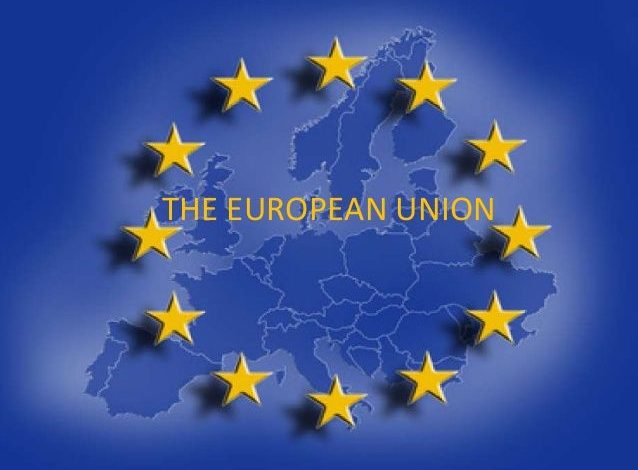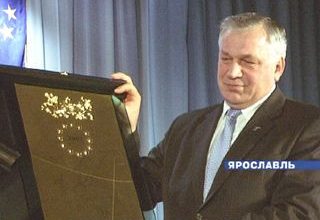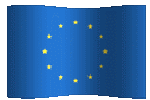While Britain is breaking its spears about the further expansion of the EU, a united Europe leaves behind all its rivals, turning into the most effective empire in the modern world. American scientist Parag Hannah reflects on the birth of a new Rome
Kiev, Tbilisi and Baku do not resemble such majestic European capitals as London, Paris or Rome. Dotted with bulky architectural and spiritual “debris” of the former USSR, these cities – like the countries whose capitals they are – need serious “overhaul”. The trouble is that this requires political stability, investment, and, most importantly, some kind of counterbalance to Russia, which is trying to draw these states back into its orbit through leverage such as borders, pipelines, and markets.
“Everything is very simple: we hate Russia,” one Estonian diplomat notes, roughly speaking of the essence of the problem, which is both strategic and emotional. Of course, we are not talking about a new challenge for the European East, where Western Christianity, Slavic Orthodoxy and Turkic Islam have been confronting for a thousand years. But the “European empire” can rightfully be considered a new solution to the old problem.
Empires today, frankly, are not in fashion. They are considered aggressive, prone to mercantilist politics relics of the past, a place in the dustbin of history, as evidenced by the departure of Britain, France and Portugal from their African and Asian colonies, and then the collapse of the USSR. Many predicted that the imperial order will be replaced by a new era of political fragmentation, due to the self-determination of peoples – each ethnic minority will now have its own statehood, currency and place in the hall of the UN General Assembly.
However, empires for thousands of years have played the role of the most powerful political entities on the planet: it was their yoke that did not allow the dependent nations to fight each other, thereby satisfying the eternal desire of people for order. Perhaps the empire is not an ideal type of political structure, especially when you consider that devastating wars flare up periodically between them, but human psychology is a powerful restraint that still does not allow us to create something more perfect. In general, the “large format” is again relevant. It is the relations between empires today that determine the situation in the world. Empires, not civilizations, give geography meaningfulness.
A thoughtful tour along the paths of European imperial expansion begins on the map – just swipe your finger along the zigzag line from the cold waves of the Baltic through Ukraine, Romania, the states of Central Europe, the countries of the former Yugoslavia and the Southern Balkans, and then east – along the Black Sea coast, through Bulgaria, Turkey and the Caucasus to the Caspian oil fields. With the exception of Turkey, all of this “disputed territory” – formerly called the “second world” – was recently painted in red, indicating the zone of operation of the Warsaw Pact. Today, the European Union repaints it in its own blue color, making it clear that the region is ready to join the “first world”.
However, the real road through the new eastern region of united Europe is extremely bumpy, clogged with unexpected delays and all the worries and worries that are peculiar to people freed from totalitarian oppression less than two decades ago.
Despite the complexity of the process of re-evaluating the values experienced by the post-communist countries of the region in the 1990s, the EU has already won the lightest “fights”. Since the collapse of the USSR, on average, one country has joined it each year. In one single day – May 1, 2004 – more than 100 million citizens of 10 countries officially became residents of a united Europe.
For more than half a century, the countries of Europe have been joining their potential and efforts – in the end, it was precisely this that inspired new life in the small countries of the Continent devastated by World War II. Although the EU countries retain sovereignty, the “high sense” of their existence is now associated with belonging to the only superstate in the world. Wars between them became impossible – too strong ties bind the participating countries within the framework of an extensive institutional structure of the EU, and the prospect of guaranteed security and prosperity as a whole plays the role of an effective incentive to coordinate their foreign policy positions. “The largest logistics operation in our area since the end of World War II is not related to military needs,” the official with whom we speak in one of the EU’s office buildings, sparkling with novelty and striking pretentiousness, strikes with pride, – and with the issuance of the European currency in 2002. “
Europe has its own vision of a “correct” world order – and it is increasingly realizing it, whether America likes it or not. In economic terms, the EU today is the most confident power in the world; he is constantly defeating the United States in trade disputes, and the higher commercial and environmental standards adopted in Europe are already becoming a landmark across the planet. It seems to many Europeans that America is rotten through and through, lives on borrowed funds, and with dangerous heartlessness ignores the need for social protection of its own citizens and concern for the environment. In terms of humanitarian aid to other countries, the EU is much ahead of the United States, and South America, Asia and other regions are considered as a role model not the American, but the “European dream.”
More and more disagreements between America and the EU arise over the goals and means of political influence. For many Europeans, the US war in Iraq was a confirmation of their own belief that the use of force is not a tool of politics, but evidence of its failure. Al-Qaida attacks in Europe only exacerbated the rejection of American methods. One often hears that America and Europe make up a strong team, because the first “breaks”, and the second “rebuilds”, but Europeans themselves have been annoying this cliché for a long time: they would like to spread their own “periphery” of the EU, especially in Arab countries the concept of stability, until America finally shook the situation in this region.
The European Union – the most developed form of supranational government today – unites countries rather by the principle of corporate merger, rather than political conquest, and the result is an “increment” of the territory and increased trade throughout the space from North Africa to the Caucasus. Managers, strategists and lawmakers from Brussels – the capital of a united Europe – increasingly see the EU as a global “balance” that creates the necessary balance between America and China. German Jorgo Chatzimarkakis, a member of the European Parliament, calls this “European patriotism.” Europe plays on both “fields”, and if it shows sufficient art, it gets considerable benefits.
Robert Kagan (Robert Kagan) belongs to the famous aphorism that America comes from Mars, and Europe – from Venus. In fact, Europe is more likely from Mercury – and its wallet is full of money to the eyeballs. The European market is the largest in the world, and European technologies are increasingly setting world standards. If a conflict occurs between America and China, capitals from around the world will find reliable refuge in European banks. Many Americans laughed at the introduction of the euro, arguing that this task is beyond the power of the EU, and the case will end in the collapse of the entire “European project.”
Today, however, Arab oil-exporting countries are diversifying their foreign exchange reserves, partially converting them into euros, and Iranian President Mahmoud Ahmadinejad (Mahmoud Ahmadinejad) offers OPEC to abandon the establishment of oil prices in “depreciated” dollars. And since London is once again turning into the stock exchange capital of the world, one should not be surprised that the newly created Chinese state investment fund will place its main headquarters in the West there, and not in New York. Model Gisele Bundchen already requires her to pay fees in European currency, and in the recently released video clip, rapper Jay-Z literally drowns in banknotes of 500 euros. It seems that America’s “soft influence” is weakening even on its own territory.
The influence of Europe, meanwhile, is growing – including at the expense of the American. If Washington acts extremely slurred in the field of state-building, then Europe spares no money and political capital for drawing neighboring countries into its orbit. Many foreign students who are afraid of going to the United States after September 11 have moved to London or Berlin: twice as many Chinese are studying in Europe now than in America.
EU enlargement is financially more expensive than America – its war in Iraq, however, these costs really “pay off.” “With each wave of expansion, we consciously strive to make the Union poorer,” one EU official from Lithuania explained to me in a Brussels beer house clogged with multilingual “europhiles.” “But the stability we are spreading is simply priceless.” The EU spends $ 10 billion (5.07 billion pounds) a year on the modernization of the material infrastructure of its newfound East, accelerating its revival after decades of communist mismanagement. This strategy, which has already ensured the “takeoff” of Ireland, which was still considered a “sick man of Europe” a quarter of a century ago, as well as the authoritarian Spain and Portugal, is now doing the same miracles in the east. For example, Hungary – which it was said that it would “catch up” with the West for decades – has already become a regional haven for foreign companies: 80% of the country’s products are produced by enterprises owned by European transnational corporations, and the same percentage of its exports go to states EU
EU enlargement has turned into a “positive spiral”, allowing us to develop new markets and thereby reduce dependence on US exports – this is extremely important for the formation of an independent superpower. The influx of fresh blood – the new members of the Union – creates “competitive federalism” contributing to the economic development of the whole Continent. The model adopted by the Baltic states – freedom of enterprise, unhindered competition and flexible labor laws – through Central Europe is gradually spreading among the countries “lagging behind” in the rate of growth of the West.
The EU is undoubtedly the most popular and effective empire in history, and all because it does not dominate, but disciplines. The incentives for “Europeanization” are too irresistible — subsidies from Brussels, complete freedom of movement, and the transition to the euro. There are no less lobbyists in Brussels today than in Washington – there are dozens of PR agencies among them working on orders from the Balkan and post-Soviet states and actively seeking admission to the Union. However, for this, the post-communist countries, which are still in poverty, will need more than to gloss over their own image. They will have to take specific measures to bring their legislation in line with the EU legal norms: this is provided for in the New Strategy for neighboring countries, combining military, economic and administrative aspects.
The growing diversity of Europe is turning Europeanism, the transition from tribal to cosmopolitan identity from a mythical ideal into a gradually achievable reality. Although some people in the west of the Continent are worried that their “elite breed” will dissolve into the mass, the evolution of a united Europe gives the concept of “Europeanism” a very definite meaning. So, Europe has already partially become Islamic – the number of Muslim communities is growing in Britain, France and Germany, and the EU’s diplomatic and strategic space – through the Council of Europe and NATO – includes almost 100 million Muslims from Albania, Bosnia, Turkey and Azerbaijan.
European identity gains the same strength (or weakness) as American or Chinese. And since life imitates art, all countries participating in European football championships or vocal Eurovision competitions perceive themselves – and more and more are perceived by others – as European ones. But most importantly, an entire generation of students who grew up after the end of the Cold War (or the “Erasmus Generation” – the name of the EU’s educational exchange program) overcomes the limits of national identity that their fathers fought for, and all this strengthens stability on the Continent. This “post-national” European youth travels without a visa throughout the space from Belfast to Baku, speaks several languages, studies exchange abroad and votes in the elections to the European Parliament.
As was the case with all empires, the EU “elastic band” will stretch until it is possible, until it completely replaces the Bose Union of the Soviet Union in the entire east of the Continent, creating a continuous, without internal borders, “Pax Europea” from approximately 35 countries – a sort of imperial “blanket” under which almost 600 million people will hide. However, the Europeanization of the zigzag zone that we spoke about at the beginning is still far from over. The Balkans and the Caucasus continue to represent post-conflict regions with an unstable situation, convenient crossroads for smuggling weapons and people; Turkey has its own head on its shoulders, and it will not be easy to subjugate it; and, finally, Russia remains the most powerful obstacle to European ambitions.
Parag Khanna The Second World; Empires and Influence in the new Global Order
This post is also available in:
 English
English  Русский (Russian)
Русский (Russian)





